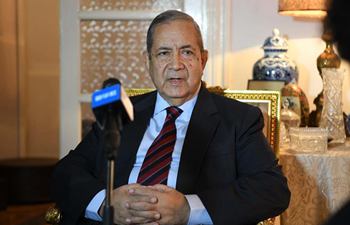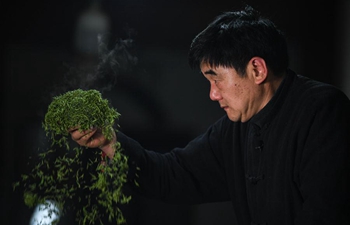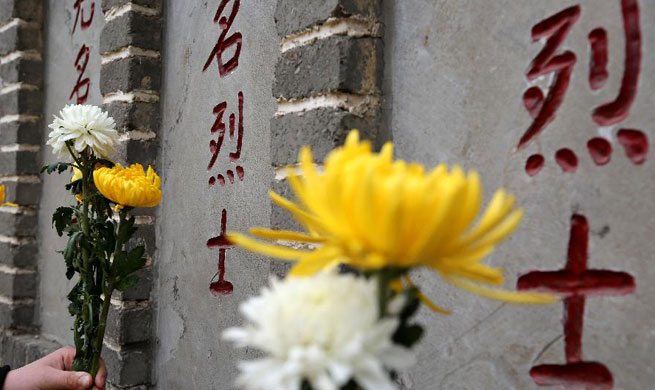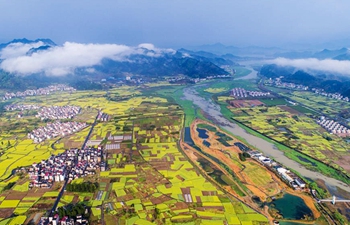by Raimundo Urrechaga
HAVANA, April 4 (Xinhua) -- U.S. President Donald Trump's protectionist policies have not only ignited worldwide frustration, but has also put Washington on the verge of economic crisis, said a Cuban economist.
According to renowned Cuban economist, Joaquin Infante, the latest U.S. economic policies including tariffs on Chinese imports are part of an "erratic" and "counterproductive" conception that responds to "impulses" and a "limited vision" of reality.
"Trump is trying to apply the so-called economic spill policy which means increasing profits of companies in the United States, the income of millionaires and then supposedly that will benefit the rest of the people, but that never happens," said Infante.
In an interview with Xinhua, the winner of Cuba's national economy prize said Trump's strategy is to wipe out all commercial agreements signed by Washington after World War II which could lead to unprecedented trade disputes.
At the same time, his contempt for multilateral organizations such as the United Nations and the World Trade Organization (WTO), suggests a return to the decades when the U.S. showed off its economic supremacy.
"In a world where globalization is irreversible due to technological development and where multilateral trade prevails, Trump is doing quite the opposite with policies that will harm the American economy," he said.
Washington on Tuesday published a proposed list of Chinese goods subject to additional 25 percent tariffs amid strong opposition from China and U.S. business groups, the latest protectionist action taken by the United States to escalate the trade tensions between the world's two largest economies.
At the beginning of March, Trump's administration announced that the United States would impose 25 percent of tariff on steel imports and 10 percent for aluminum.
"He's provoking a trade war because the international community has to respond in the same way," he said.
To defend its legitimate rights, China planned to immediately bring relevant U.S. practice to the WTO, and is ready to take countermeasures on U.S. products with equal force and scale.
Infante said an eventual trade war would affect many countries around the globe, with the United States also being severely harmed.
Trump's threat of a trade war against Beijing, according to the Cuban expert, is a sign of "arrogance" and "political clumsiness."
Infante said the rapid development of China's emerging economy and its position in favor of multilateral trade and collaboration among nations will increase Beijing's positive influence in the world and make Washington's proposals less competitive and attractive.
According to the Cuban economist, Trump is betting on bilateral negotiations, where commercial asymmetries are greater and Washington's ability to ramp up political pressure gives it advantage over smaller or less developed nations.
Infante also recalled that Trump campaigned heavily on bringing manufacturing jobs back to the United States.
However, something that was not part of his speech, is that in the countries where these manufacturing factories are located, the salary of employees is 10 times less than what an American worker would receive, Infante said.
Therefore, this aspect, together with the increase in tariffs on imports of products from many nations, would result in an increase in production costs and, consequently, in retail prices that would directly affect U.S. consumers.
Trump has also proposed to reduce taxes on lucrative companies while increasing the national budget, particularly with defense spending reaching a record 700 billion U.S. dollars.
"Their budget deficit will increase and, by the end of next year, the United States will have a critical domestic situation as all the measures that Trump is adopting will have a backlash against the American economy," said Infante.
The Cuban expert believed this "complex scenario" will resound globally and may mark a return to the severe economic crisis of 2008, while also threatening Washington's position as a global power.?

















